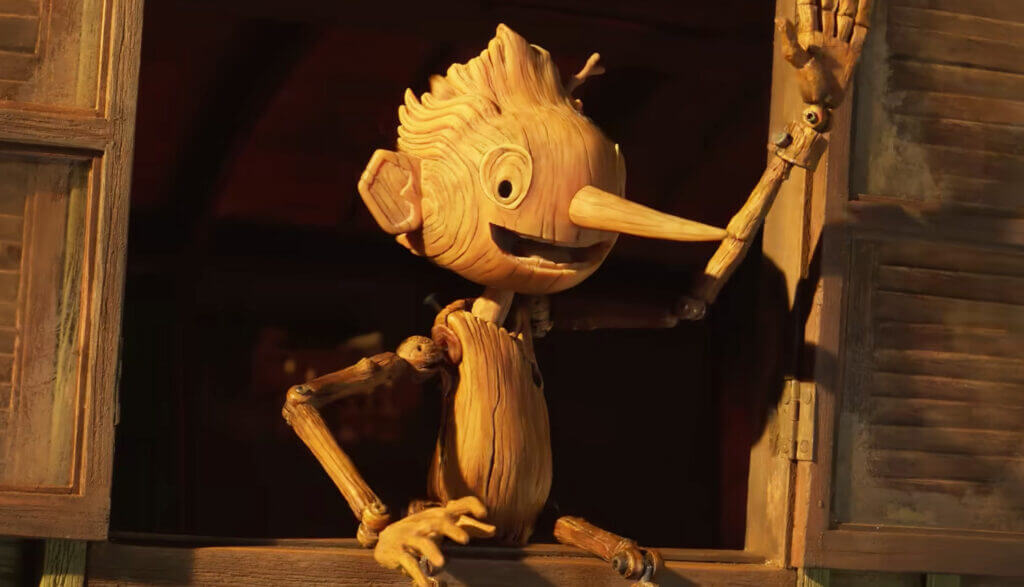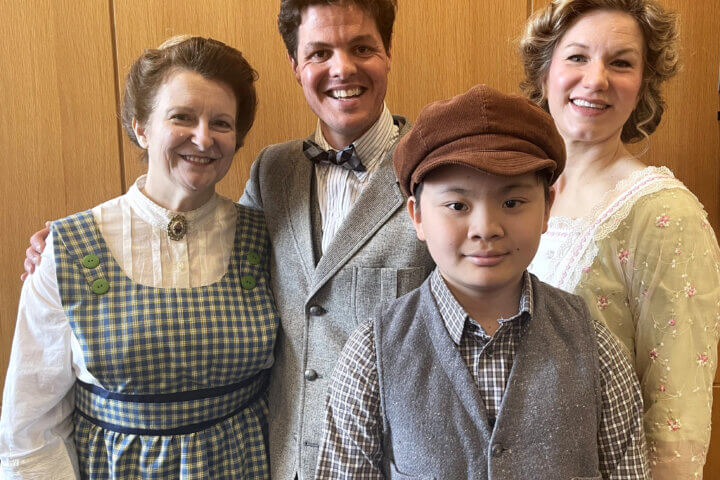The old hourglass, filled with golden sand, sits beside a chair in Patrick McHale’s front room. It is special to him, so when Arthur, the family’s grey cat, leaps onto the table, sending the invertible item wobbling, McHale lifts the feline gently and places him in the hallway.
McHale collects antique books and vintage Atari games, but the glass time measurer has a special meaning. Hourglasses figure in a new stop-motion film, “Guillermo del Toro’s Pinocchio,” that McHale co-wrote with the Oscar-winning Mexican writer-director. They symbolize the relentless passage of time, a theme of the movie.
The film is being hailed for its remarkable production design and believable characters. “It’s pretty incredible how they made them come to life,” says McHale, referring to the team that imparted vibrant personalities to the models.

After premiering in theatres this fall, the movie is being streamed on Netflix starting in December.
McHale helped write the film first while in Vancouver with del Toro and then at a computer next to the fireplace in his 1840s home on a country road in Concord. He and the director traded ideas and “shot scripts back and forth.”
After earning a BFA in 2006 from the California Institute of the Arts, the New Jersey native wrote and storyboarded at Cartoon Network Studios. He worked on a series titled “The Marvelous Adventures of Flapjack” that was twice nominated for an Emmy.
In 2011 McHale began work on “Tome of the Unknown,” an eight-minute short that became the basis for a ten-part miniseries, “Over the Garden Wall.” It earned an Emmy for Best Animated Program.
McHale has written several graphic novels and comic books. He has also served as a consultant to Netflix, providing ideas and feedback when it was planning its animation studio.
“Homesick for the seasons,” McHale came back east at one point and stayed for a time in Concord. He settled here eight years ago with his family, drawn to the town’s “nice balance of nature, history, and culture, proximity to Boston, and good schools.”
After del Toro saw some of McHale’s work, he phoned him, which McHale at first thought might be a prank call. That led to sharing ideas about what they could do together and later, to collaborating on “Pinocchio.”
Set in WWII fascist Italy, this version is darker in tone than the 1940 Disney film and the 1883 children’s novel. In the new movie, Geppetto’s sweet son Carlo is killed by a stray bomb and the woodcarver one night drunkenly builds out of pine a spindly boy that looks like his lost child.
The film is steeped in loss and grief. As one character says, “You never know how long you have with someone until they’re gone.” But it is also a celebration of life and love, McHale says.
Working primarily on character development, McHale imagined, for example, how Pinocchio, who tends to be disobedient and defiant, might annoy Geppetto and lent the puppet “real boy” behavior. Though Pinocchio is “obnoxious sometimes and gets into trouble, he’s just an innocent boy, a baby really, as he has actually just been born,” he says.
These days McHale, also a songwriter who wrote some of the lyrics for the songs in the film and has recorded music with friends, is working on a number of personal projects, including a “dream project:” a period mini-series with puppetry and animation.
Having attended the LA premiere of “Pinocchio,” McHale says he prefers the creative process to the public role of a filmmaker. “I don’t really need to be on a red carpet,” he says. “I just want to make things I care about, and hopefully people.





